The United Nations headquarters, perched on New York’s East River, was the scene of diplomatic dramas and recriminations this month as world leaders gathered for the highest profile week in the UN calendar.
The backdrop was the conflict raging in Syria, with heightened tensions after bombing attacks that breached a ceasefire brokered by the United States and Russia.
Insight was there as New Zealand, in the hot seat as the president of the Security Council for September, held a session on Syria for the main meeting of the week.
With just three months of its term on the council left, did New Zealand put that time to good use?
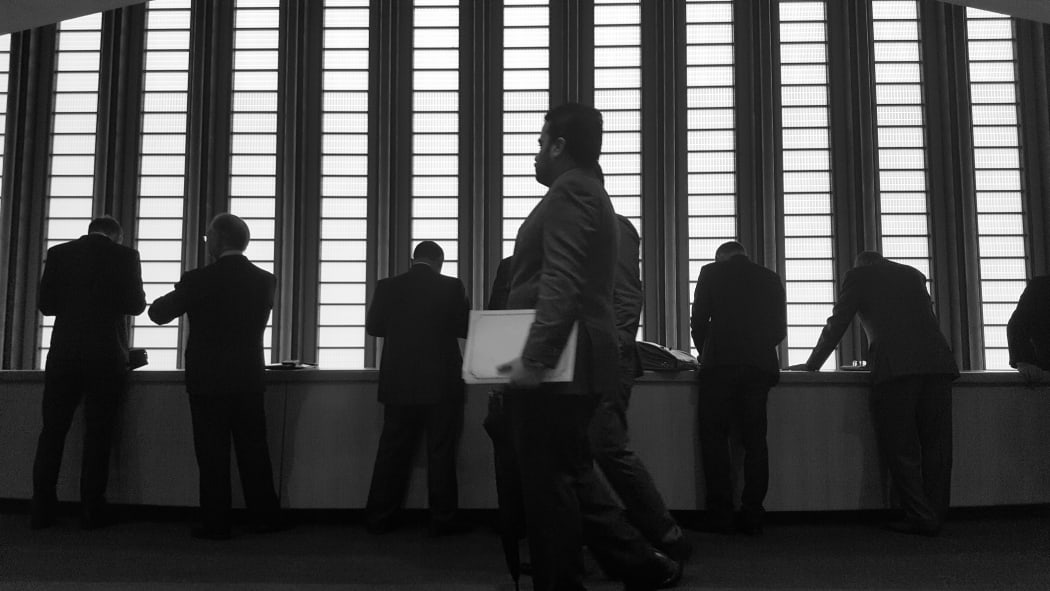
New Zealand's two-year term on the UN Security Council will expire at the end of this year. Photo: RNZ/Jane Patterson
Downtown New York becomes even more chaotic than usual during Leaders' Week at the United Nations.
The 10 blocks surrounding the massive UN New York headquarters are cut off to normal traffic and pedestrians, causing gridlocked traffic, blaring sirens and horns, with thousands of police officers directing traffic, frustrated New Yorkers and the hundreds of blue-tagged UN delegates.
Inside the UN it's not much better.
There is an air of stress and urgency as everybody tries to get to a meeting with a prime minister, president or foreign minister, while forced to navigate a labyrinth of multiple security points.
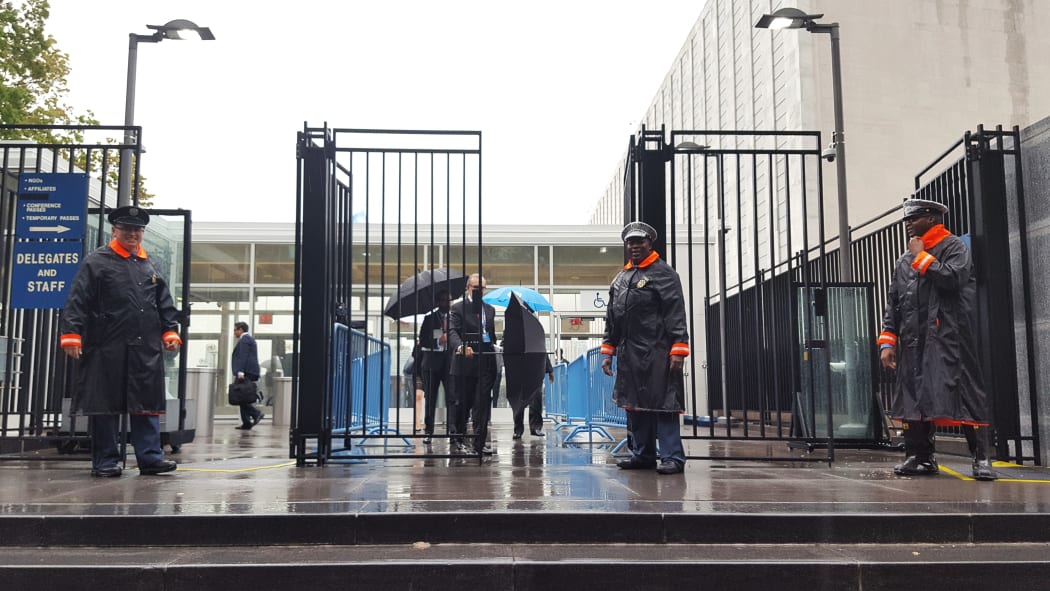
NYPD officers stand guard at the gates of the UN in New York. Photo: RNZ/Jane Patterson
Every 100m, there is an airport-style security stop, with journalists and officials clambering to slide off their belts and watches and empty out their bags - sometimes up to five times just to get to one event.
The atmosphere in the massive UN chamber and the Security Council is much more calm and considered, with leaders' speeches a quiet drone in the background to much of the other activity.
A mezzanine floor with makeshift booths is dedicated to leader-to-leader meetings.
World leaders swoop in accompanied by heavy security: a handshake and some small talk take place while reporters snap away; once they are ushered out, there will be 15 minutes of diplomatic chitchat - always a "positive discussion" about the issues between any two countries.
Prime Minister John Key met with new British Prime Minister Theresa May, but he was hosted in her swanky New York apartment - avoiding the managed chaos for that meeting.
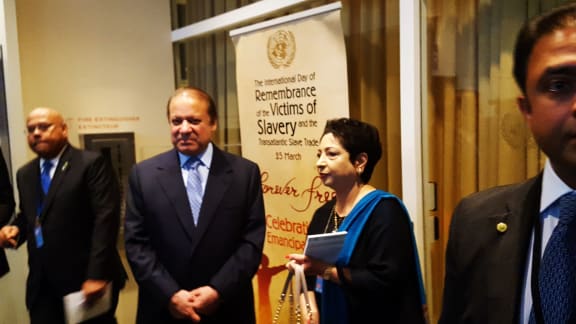
Pakistan's PM Nawaz Sharif waits for a meeting with Mr Key Photo: RNZ/Jane Patterson
Back in the UN booth, he met with leaders from Iraq and Saudi Arabia, among others.
While Mr Key wound up a meeting with the head of the European Commission, Pakistan's Prime Minister Nawaz Sharif stood awkwardly outside the booth, checking his watch.
It is all part of the diplomatic dance and relationship-building, which for countries like New Zealand is arguably more important than the formalities and set-piece events of Leaders' Week.
And the timing could not have been better for the interests of "New Zealand Inc".
From a diplomatic point of view, the stars were certainly aligned, with New Zealand's presidency falling on Leaders' Week while Helen Clark was competing for the high-profile job of UN Secretary-General.
"It's a chance that only comes around every million years", gushed one Ministry of Foreign Affairs and Trade staffer.
His maths was challenged by another colleague, but there was definitely a strong belief New Zealand had a major opportunity to make its mark on the international stage.
The Syrian crisis of course dominated discussions both in the hallways of the UN and the floor of the Security Council and the General Assembly.
As president, New Zealand nominated the conflict, characterised as the worst in modern times, as the topic for the main Security Council meeting.
But the drama began days before that meeting - Mr Key's flight to Houston was delayed after it was diverted to Tahiti for a medical emergency, and once the plane (which was also carrying the media delegation) landed, he was greeted by news of the bombing in the Chelsea district of New York, only blocks away from the UN, and an emergency meeting convened after the bombing of a UN convoy of humanitarian aid near Aleppo.
The United States apologised for its "terrible accident" after killing more than 60 Syrian soldiers in a bombing attack, and fingers were pointed at Syrian and Russian forces for the attack on the aid convoy, although neither accepted responsibility.
Listen to UN political affairs head Jeffrey Feltman discuss the crisis in Syria:
That would set the scene for Leaders' Week. The United States and Russia engaged in both backroom and very public recriminations and negotiations, arguing over breaches of the ceasefire agreed between the two of them, which had come into effect just days before - a disagreement that would spill over onto the floor of the Security Council meeting.
The New Zealand government has said it would have been easier to opt for a less contentious topic, especially given powerful members of the council were so directly involved, but in its view it would have been negligent not to draw attention to the horrific and complex crisis in Syria.
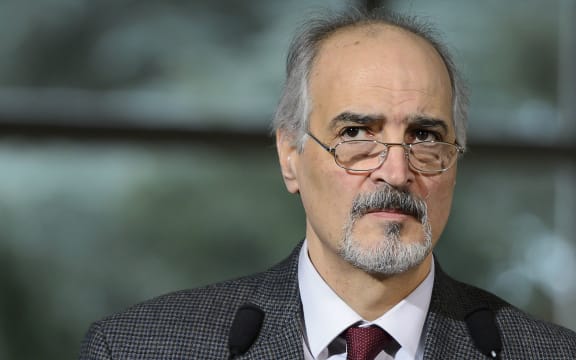
Bashar al-Jaafari Photo: AFP
No formal resolution or tangible outcome came from the meeting, but Mr Key and Foreign Minister Murray McCully have said they believed there was real merit in getting some of the key players around the table and having their views, and criticisms of their actions, placed on the record.
Syria's permanent representative to the UN, Bashar al-Jaafari was also given the opportunity to address the council, which he used to detail a litany of complaints against the US and the "international coalition", about attacks on Syrian forces, aggression against a sovereign nation and failure to reign in the terrorist groups fighting alongside the opposition.
Mission accomplished?
New Zealand received broad recognition for highlighting the Syrian crisis and the political failure to find a resolution, but what of its broader goals for its term on the Security Council?
Two of its priorities were making some kind of progress on the Middle East peace process and pushing for reform in the way the UN operated, and specifically the use of veto power.
Seen by many as at best an ambitious goal, and at worst naive, New Zealand has struggled to get any traction on Middle East peace.
It tried and failed to garner enough support for a resolution putting pressure on both Israel and the Palestinian Authority to cease inflammatory actions and rhetoric.
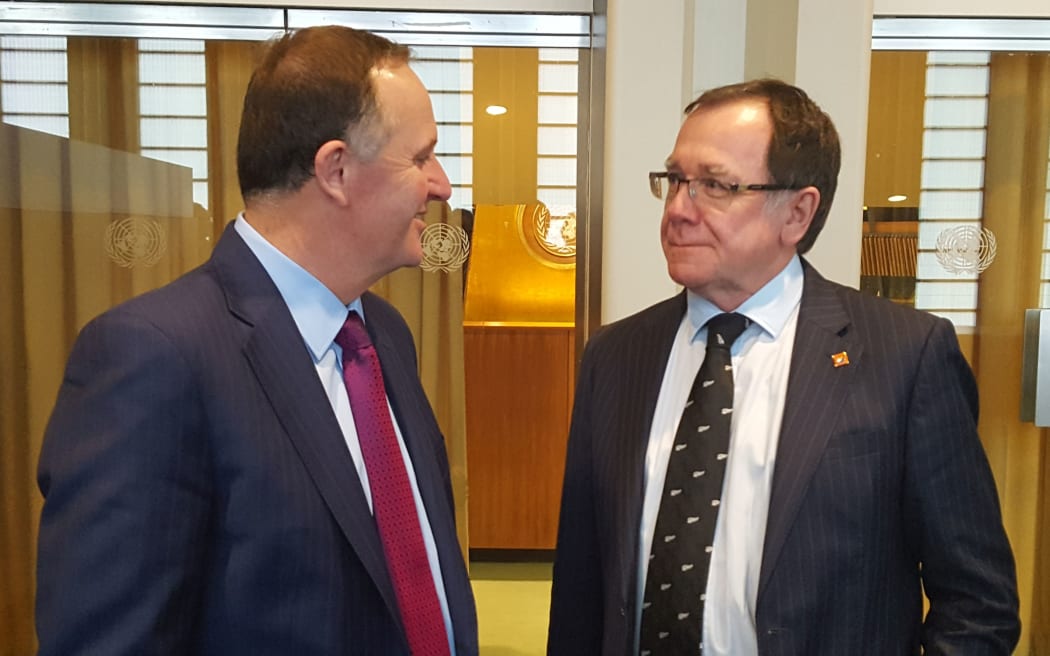
Prime Minister John Key and Foreign Minister Murray McCully at the UN in New York Photo: RNZ / Jane Patterson
Mr McCully said those efforts were still alive, and if no other country put a resolution before the council by the end of the year (also the end of New Zealand's term), New Zealand would do so itself.
Resistance to reform in the UN is equally entrenched and intractable.
Parties across the political spectrum in the New Zealand Parliament have condemned the use of the veto power wielded by members of the permanent five (P5) to prevent a UN response to genocides or mass atrocities.
If the right of veto was not removed altogether, they have argued its use should be restricted and should not be able to be used when thousands, or even millions, of lives were at stake, a view backed by council members such as France and the United Kingdom.
Mr McCully said New Zealand had made this point to the P5 in no uncertain terms, on many occasions during in the past year or so.
He acknowledged there was only so much countries like New Zealand could do, but said he had warned the P5 that, if they did not embrace change, they would be engulfed by it.

